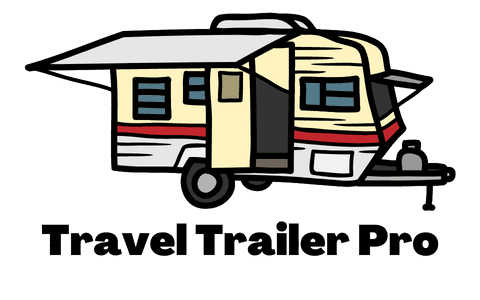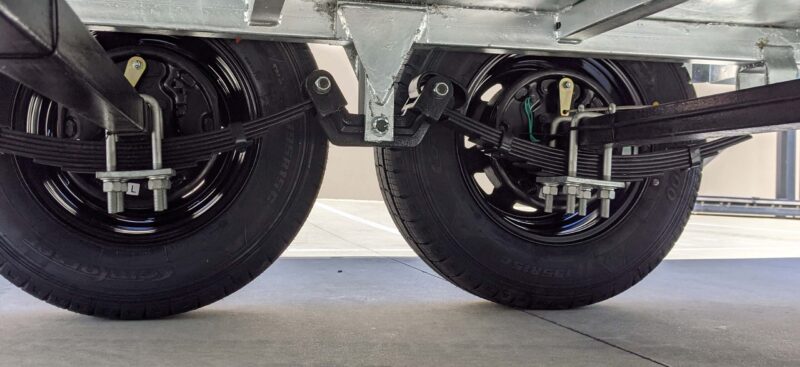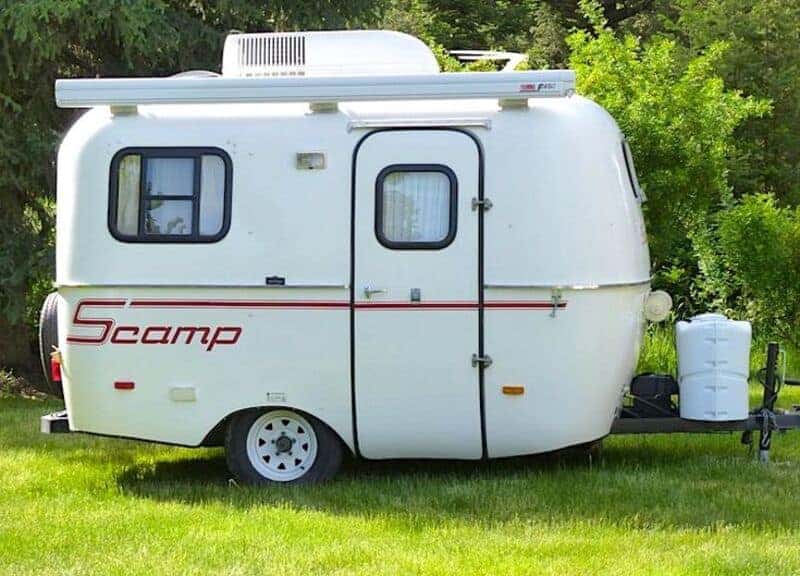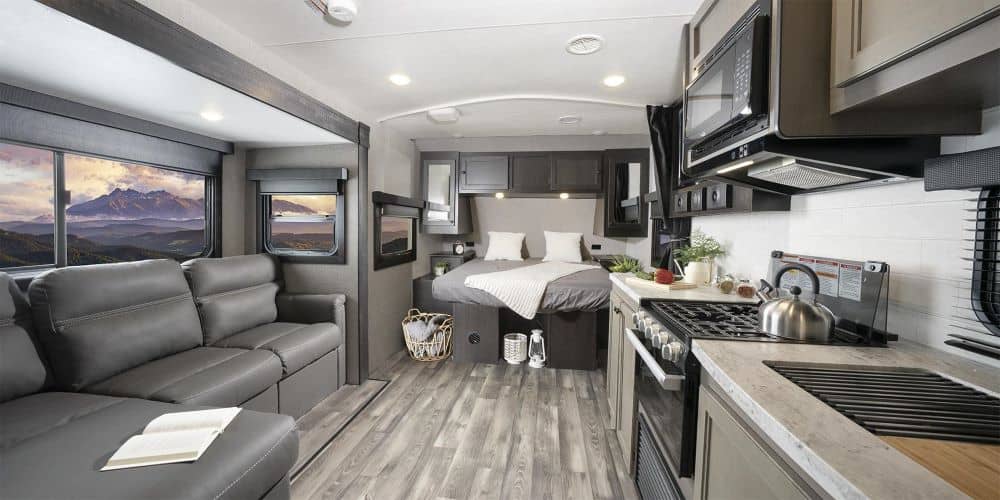Travel trailer brakes are often one of those trailer parts that we forget about until something is wrong. Like the brakes on our tow vehicle, travel trailer brakes should periodically be replaced and maintained for proper operation and safety.
One of the maintenance questions that many travel trailer owners ponder is how long their travel trailer brakes should last. While your owner’s manual may provide some helpful information on standard replacement schedules, there are times when you may need or want to replace your travel trailer brakes more frequently.
In this article, we will dive into all the things you need to know about how long your travel trailer brakes should last. We will also give you some general information about travel trailer brakes that all RV owners should know.
Do All Travel Trailers Have Brakes?
Brakes are pretty standard equipment on most travel trailers. Most travel trailers have electric brakes that connect to a controller in your tow vehicle. Travel trailer brakes allow for safe braking and are quite helpful when traveling down hills.
Many owners of small travel trailers, pop-up campers, and teardrop trailers are often surprised to learn that their trailers do not have brakes. Not all travel trailers are required to have brakes and if your RV is light enough, it may not need brakes.
Typically, travel trailers that are less than 3000 pounds do not require brakes. A large enough tow vehicle should have plenty of braking power to handle stopping a small trailer.
If you are considering a smaller travel trailer, it is important that you research what the requirements are for your particular state. Some states do have different requirements for brakes on smaller or lightweight travel trailers.
If you are required to have brakes, look for models that have them as standard or optional equipment, or you can add them if you are purchasing a used trailer.
Can You Add Brakes To A Travel Trailer?
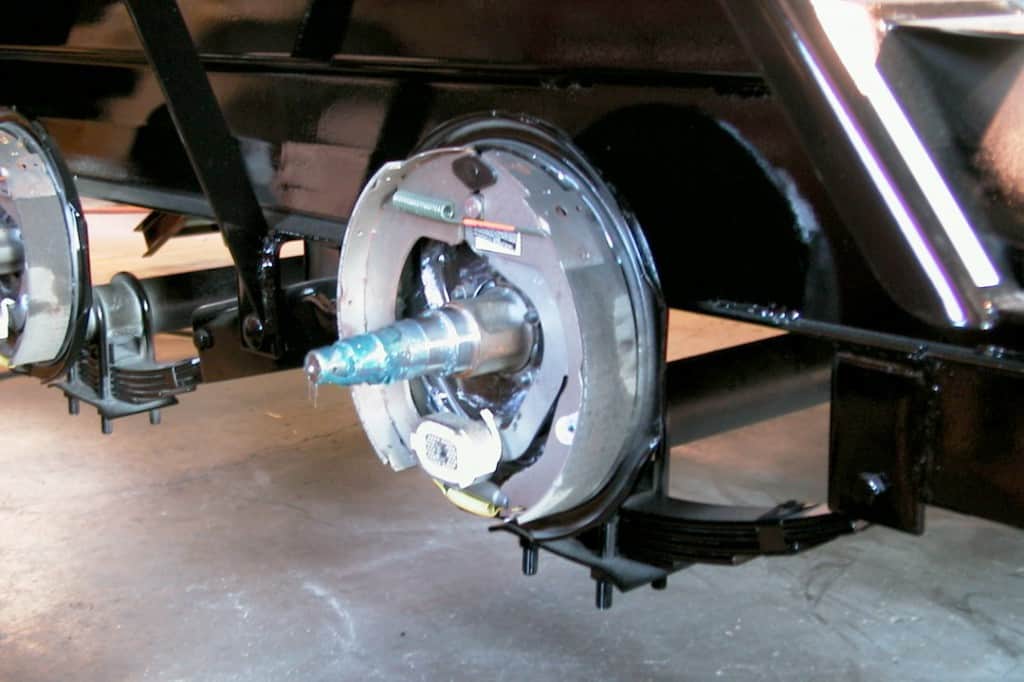
If you own a travel trailer without brakes and you want to add them it is a fairly simple process. Travel trailer brake kits are available for a wide range of axle sizes. They are relatively inexpensive to purchase. Typically, you will need to purchase the brake kit, and wiring components if they are not included with the kit and the controller for your tow vehicle.
While the kits are easy to find, it is not as easy to install travel trailer brakes. Installing brakes may require tools and equipment that most RVers do not own. Many RVers, even those that are mechanically inclined will have a professional install their trailer brakes.
Are All Trailer Brakes The Same Size?
There is some variability in the brake sizes that are used on travel trailers. Most of the variability comes when you are considering a larger travel trailer. What works on most average and smaller-sized travel trailers will not be sufficient to accommodate the weight of larger travel trailers.
While most travel trailers come with a common-sized brake, it is important that you confirm the requirements for your particular travel trailer.
How Do I Know The Size Of My Camper Brakes?
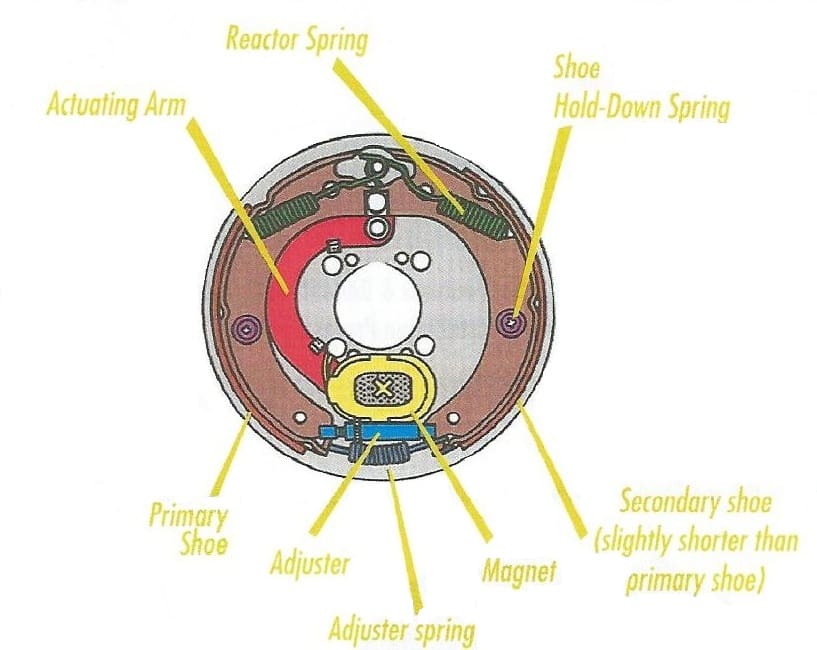
There are a few ways that you can determine the size of your brakes. The method that you use will depend on whether you are doing maintenance on your trailer brakes or if you are looking to add a brake kit to a trailer that does not have brakes.
The first and easiest way to determine the size of the brakes on your travel trailer is to check your owner’s manual. Most RV manufacturers will provide these sorts of specifications somewhere in the manual.
There may also be a panel in the RV that has this information. If you cannot find the information in your owner’s manual, most RV manufacturers will have part specifications on their website. When in doubt, your local RV dealer or repair garage should have this information.
If you feel confident with your measuring skills, another common way to determine the size of trailer brakes that you need is to measure the brake drums. Make sure that you measure both the diameter and the width of the brake drum. This will ensure that you purchase the proper parts, even if you cannot find the information in another location.
Finally, if you are adding brakes to a travel trailer that currently does not have brakes, you will use the axle size for your trailer. With a limited number of brake sizes for travel trailers, you’ll find that most axles will use the same size brake.
What Are The Types Of Travel Trailer Brakes?
Travel trailers typically have two types of braking systems. These are the complete system including the drums and pads on the axles and the control features that connect the travel trailer and the tow vehicle.
The most common type of brake system you will find on travel trailers are electric trailer brakes. This system works by connecting the travel trailer to the tow vehicle, using the 7-pin connector.
Along with the electrical components on the travel trailer, your tow vehicle will need to have a brake controller installed. The controller will sense when you depress the brakes on the tow vehicle and send an electric signal to the brakes on the travel trailer. Without a controller, electric trailer brakes will not work.
The other type of braking system on travel trailers is a surge system. This type of braking system is becoming less common for travel trailers. However, it is still used by some manufacturers, and typically on smaller-sized trailers.
Surge brake systems work by engaging a hydraulic cylinder inside the tongue when the tow vehicle slows down. As the tow vehicle slows, and the travel trailer moves forward, the hydraulic cylinder engages the brakes of the trailer.
How Long Should Travel Trailer Brakes Last?
It is a good idea with travel trailer brakes to err on the side of safety. This may mean that you replace your brakes more frequently than what may be recommended by the manufacturer.
Most travel trailers have a brake life of approximately 12,000 miles. This is a general window. However, the type of towing conditions that you encounter may reduce or increase this estimate.
One of the factors that will reduce the life of your brakes is if you are traveling in mountainous areas. Using your brakes to control speed going down hills will increase the wear on your brakes.
Another driving condition that will result in a shorter brake life is stop-and-go driving. Traveling through larger cities where you may encounter lots of stoplights can also increase wear on your brakes.
Can You Change Trailer Brakes Yourself?
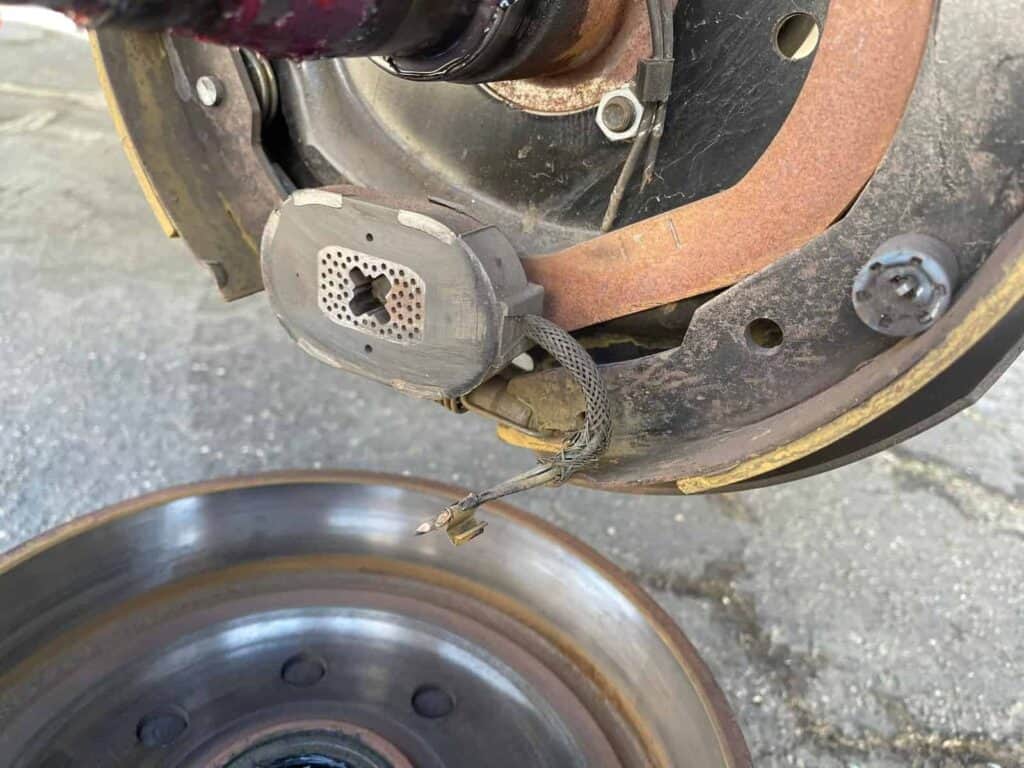
While we recommend that you use a professional to install a complete brake system on a travel trailer, changing your brakes is a pretty simple maintenance task that most RV owners can do on their own.
Changing your brakes normally consists of replacing the brake pads and the brake drum if it is worn. If your travel trailer has hydraulic brakes, you may also need to bleed or adjust the fluid in the brake lines. These tasks do not require any special tools, and if you have a bit of mechanical skills, can be done quite easily.
However, this task is not one that every RV owner is comfortable with or has the desire to do themselves.
Changing worn brakes is a relatively fast repair process. If you are on the road and need to have your brakes changed, it is nice to know that you should be back on the road in just a couple of hours.
How Much Do Travel Trailer Brakes Cost?
Whether you are changing your brakes or installing a new brake kit on a travel trailer, you will be excited to know that this is one of the lower-priced items for your travel trailer. Brakes are really important to safe travel; their reasonably affordable price makes it less of a burden to replace them within the suggested maintenance window.
Most travel trailers have axles that are less than 5000 pounds. For this size axle, the brake parts run around $200. There are higher-end products that may cost more, but in general, to change the brakes on your travel trailer you will not break the bank. If your travel trailer is larger and has axles over 5000 pounds, your price will increase, but not substantially.
If you are having a professional replace your brakes, you will also have to pay for labor. The cost of labor will vary depending on where you are and who is doing the work. Sometimes RV dealers will have a higher labor cost than a local mechanic.
One thing to note is that if you are installing a complete brake system on a small travel trailer or replacing an existing system for some reason, you also need to purchase a compatible brake controller. These run between $50 and $200, so anticipate that added cost if you are installing a completely new braking system on a travel trailer.
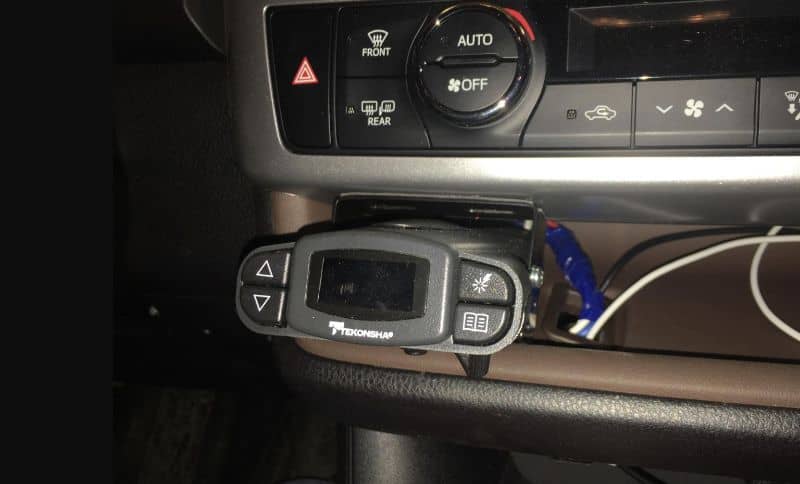
Final Thoughts About Travel Trailer Brakes
Replacing travel trailer brakes is one of the many maintenance tasks that should be completed on a regular basis. If your travel trailer is tiny and does not have brakes, they are a great addition and will make towing your trailer more comfortable and will reduce wear on your tow vehicle brakes.
Travel trailer brakes are one of the underappreciated features of our RVs. They allow us to travel safely, stop when needed, and protect our families and others from harm.
If you need to replace your travel trailer brakes make sure you consult your owner’s manual for the proper replacement parts and replacement process. Or, visit your local RV dealer or repair garage for a professional hand in changing your travel trailer brakes.
Related Reading:
–Are Camper Trailer Brakes Required By Law?
–5 Tips For RV Towing On Steep Grades
–10 Most Common Travel Trailer Repairs And How To Avoid Them
–How To Replace A 7-Pin Trailer Plug
About the Author:
Jason Gass is a full-time freelance writer and part-time RVer whose goal is to share great stories around a campfire with good friends.
When he’s not working, he spends most of his time camping, searching for the best breweries, and road-tripping in his teardrop trailer with his wife, daughter, and two dogs.

